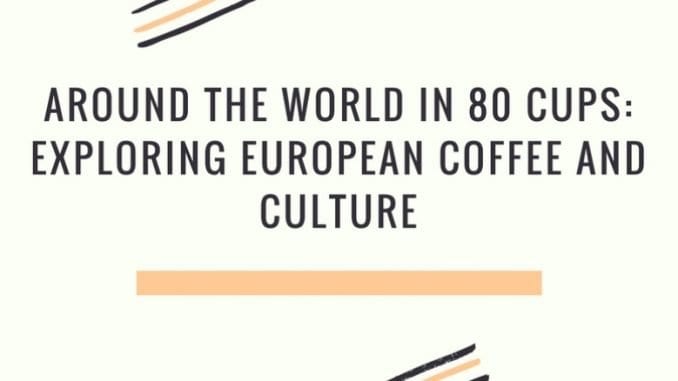
Writer Jason Huffnagle is traveling all across Europe, drinking coffee and sharing with us the cultures, recipes, and traditions of the beverage all across the continent. In this edition, he explores Kraków, Poland.
BY JASON HUFFNAGLE
SPECIAL TO BARISTA MAGAZINE
Photos courtesy of Jason Huffnagle
We’ve been running this series for a while! Catch up by checking out Jason’s visits to Edinburgh, London, Rome, Florence & Venice, Salzburg, Vienna, and Budapest.
Once the seat of the Polish monarchy, Kraków still retains much of its medieval character and charm—largely due to the city being spared bombardment during WWII. Located in Lesser Poland, situated along the banks of the Vistula River—where local legend has it a dragon once lived—it is not difficult to imagine what life would have been like here a few hundred years ago as one still hears the sounds of horses clattering along the cobblestone streets and down narrow alleyways.
Over the years, Kraków has kept its position as one of Poland’s top economic and cultural centers, in part due to it being the home of the country’s oldest and most prestigious higher education institution, the Jagiellonian University, which was founded in 1364 by King Casimir III and boasts Nicolaus Copernicus as one of its pupils. With its thriving arts scene, growing food culture, and well-preserved architecture, this picturesque city is certainly worth visiting.
Travel tip: Although Kraków is eminently walkable, there is an efficient tram and bus system, tickets for which can be bought at newsstands, grocery stores, and kiosks at select transportation stops.
Cheder
Located in what was once a Jewish house of prayer and school, the appropriately named Cheder has been educating visitors in the way of delicious coffee since 2009. It also remains true to its academic roots as it continues to function as a venue for cultural and educational events. If you are looking to try a particularly unique beverage, try their kawa po izraelsku, or Israeli-style coffee, which is essentially drip coffee infused with cardamom served in a traditional urn. Cheder also has an extensive food menu, offering delicious soups, sandwiches, and an incredible Israeli porridge—served “just right” with cardamom, nuts, dried fruits, and honey.
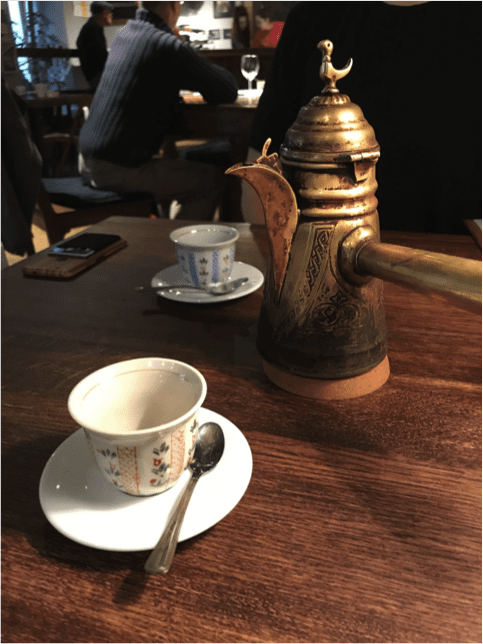
Cheder is located in Kazimierz, Kraków’s historic Jewish quarter, which has become a neighborhood filled with many indie art galleries, vintage clothing stores, and trendy restaurants and bars. Notable sites include the Old Synagogue and the Galicia Jewish Museum, which offers splendid exhibitions and must-do tours of the surrounding neighborhood. One of Kraków’s more famous outdoor markets, the Plac Nowy, is also located in this charming district.
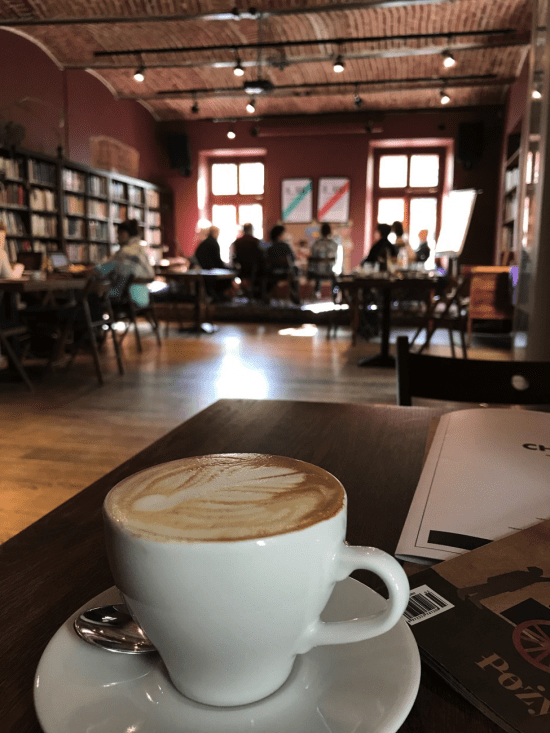
Karma Café
Further north and just outside of the Stare Miasto, or Old Town, Karma Café is notable not only for its proximity to the city’s major historic and cultural sites, but also for the groundbreaking work cofounders Bartek Kozina and Marta Hausner did in bringing third-wave coffee to Kraków. Largely credited for planting and growing the city’s coffee community, Karma’s reputation preceded itself. Unfortunately, due to to my short time in the city, I was unable to pay visit to this highly esteemed shop.
If—unlike me—you are able to visit Karma, you will also want to see Old Town’s main square (the Rynek Glówny), St. Mary’s Basilica (which holds the largest Gothic altarpiece in the world), the Cloth Market building, and the Wawel Royal Castle and Cathedral.
Oswiecim
Approximately 45 miles west of Kraków, Oswiecim (pronounced Osh-vee-en-chim) is a place unfortunately often passed through by tourists on their way to visit the Auschwitz-Birkenau Memorial and Museum, the German Nazi concentration and death camp complex, which is located a few miles away. I highly recommend that if you are going to visit Auschwitz, stop in this town before or afterward for some important history, Polish and Jewish culture, and incredible coffee.
During my visit to this quaint town, I first stopped at the Auschwitz Jewish Center, an intimate museum and education center with a beautiful exhibition that paints a picture of the thriving, pre-World War II Jewish life that existed in the town up until the Nazi takeover. The center also maintains the town’s sole active synagogue.
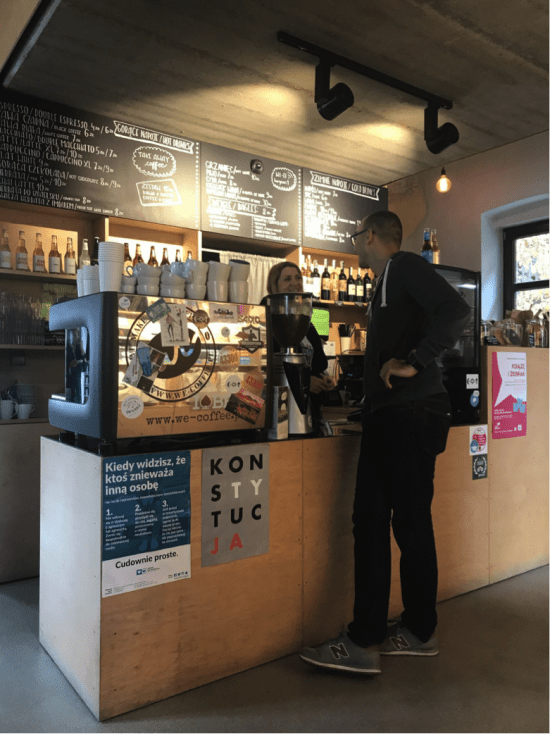
Café Bergson
Next to and owned by the Auschwitz Jewish Center is Café Bergson, a hip coffee shop with a mission to “promote openness, historical awareness, and a commitment to the common good.” The café has a rotating art exhibition, regularly holds educational events, and serves We Coffee, a family-owned third-wave coffee roaster which started in 2012.
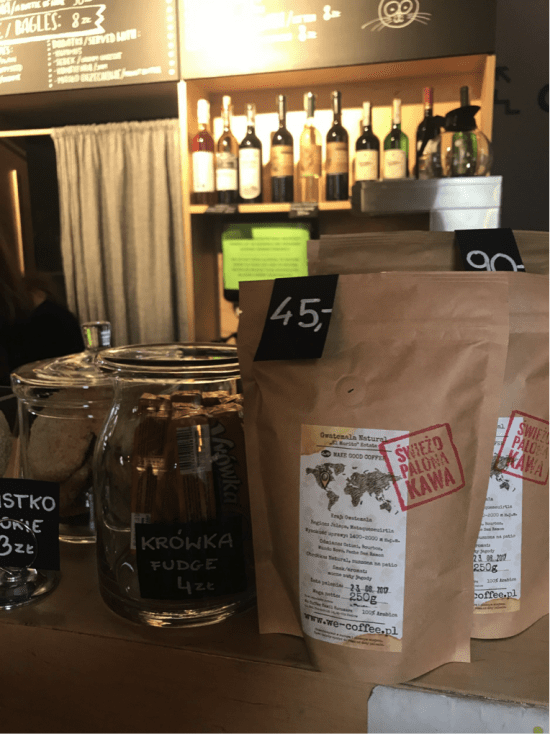
The café is located in the 100-year old Kluger Family House (Szymon Kluger, who passed away in 2000, was the last Jewish resident of Oswiecim), and is in near proximity to the Zamek Museum, a former castle turned museum, and the town’s colorful market square.
My next stop, Warsaw, lies to the north, and while I have visited the Polish capital before, I remember it as a fun and affordable city to visit.
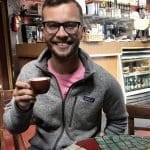 ABOUT THE AUTHOR
ABOUT THE AUTHOR
Jason Huffnagle is a freelance writer for Barista Magazine who has worked in coffee as a barista for six years. Having recently left his “adult job” in the U.S. Senate, the Alaska native is spending the next four months traveling throughout Europe. You can keep up with his coffee-fueled travels and other exploits by following him at @jasonhuffnagle on Twitter.

